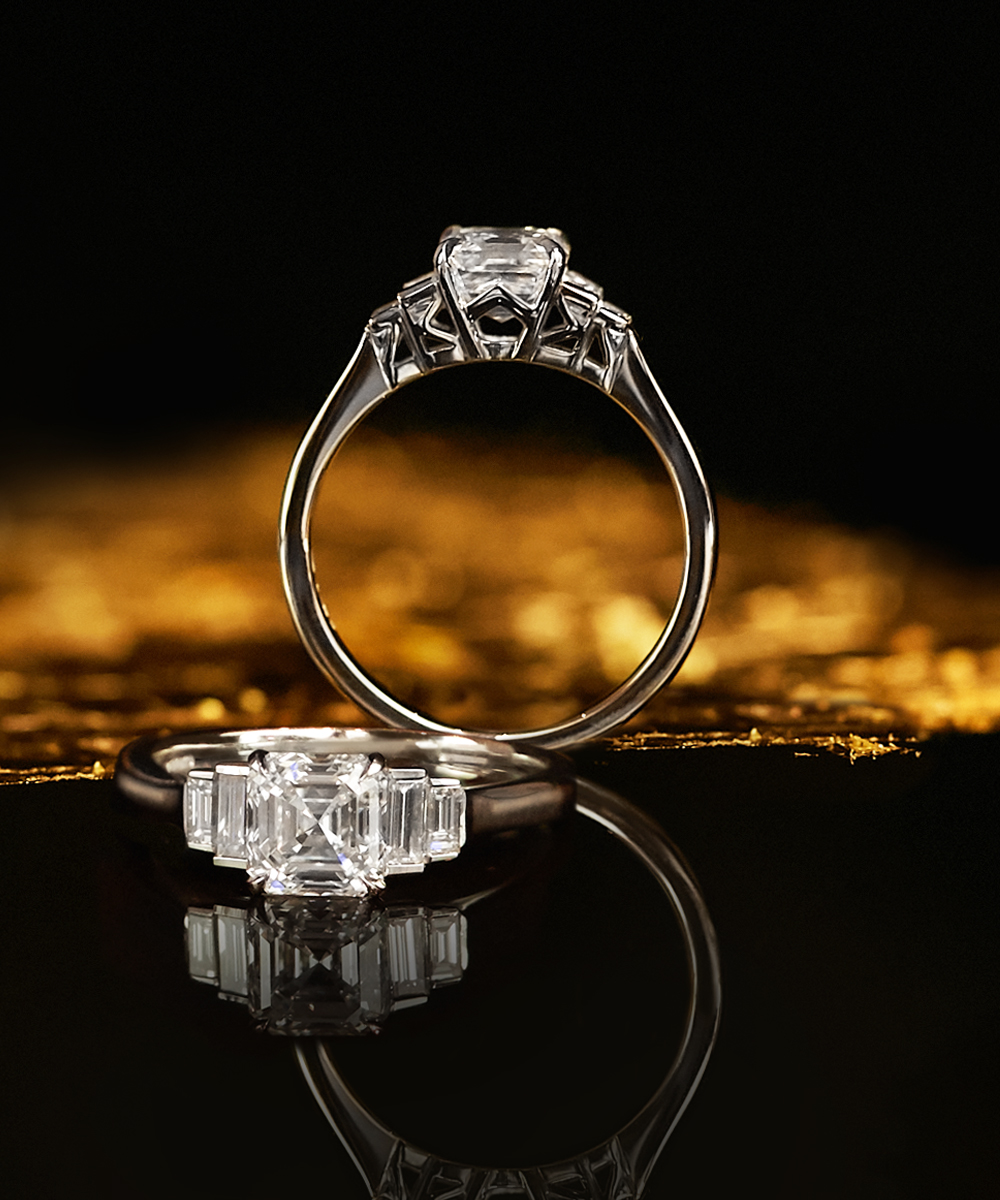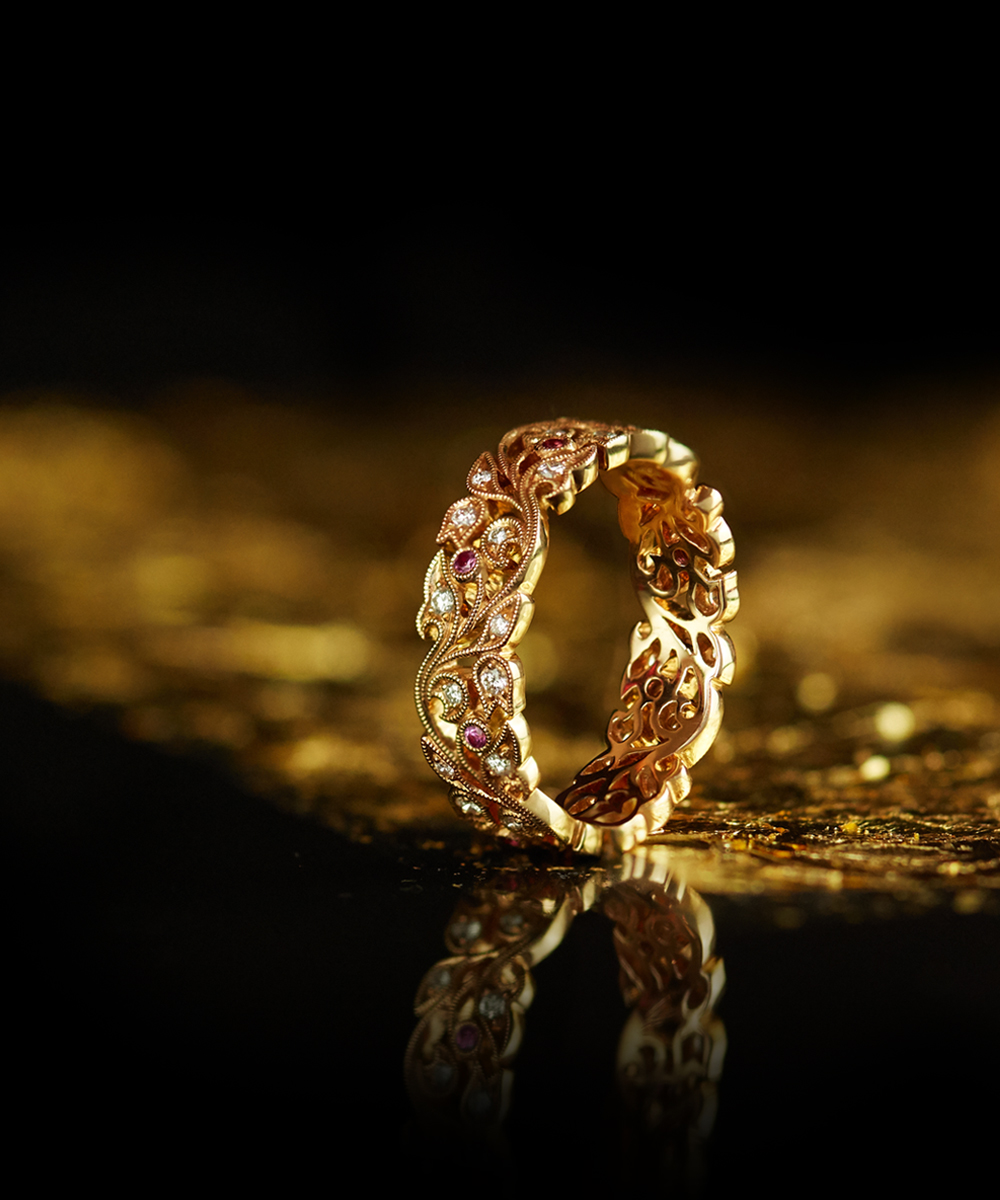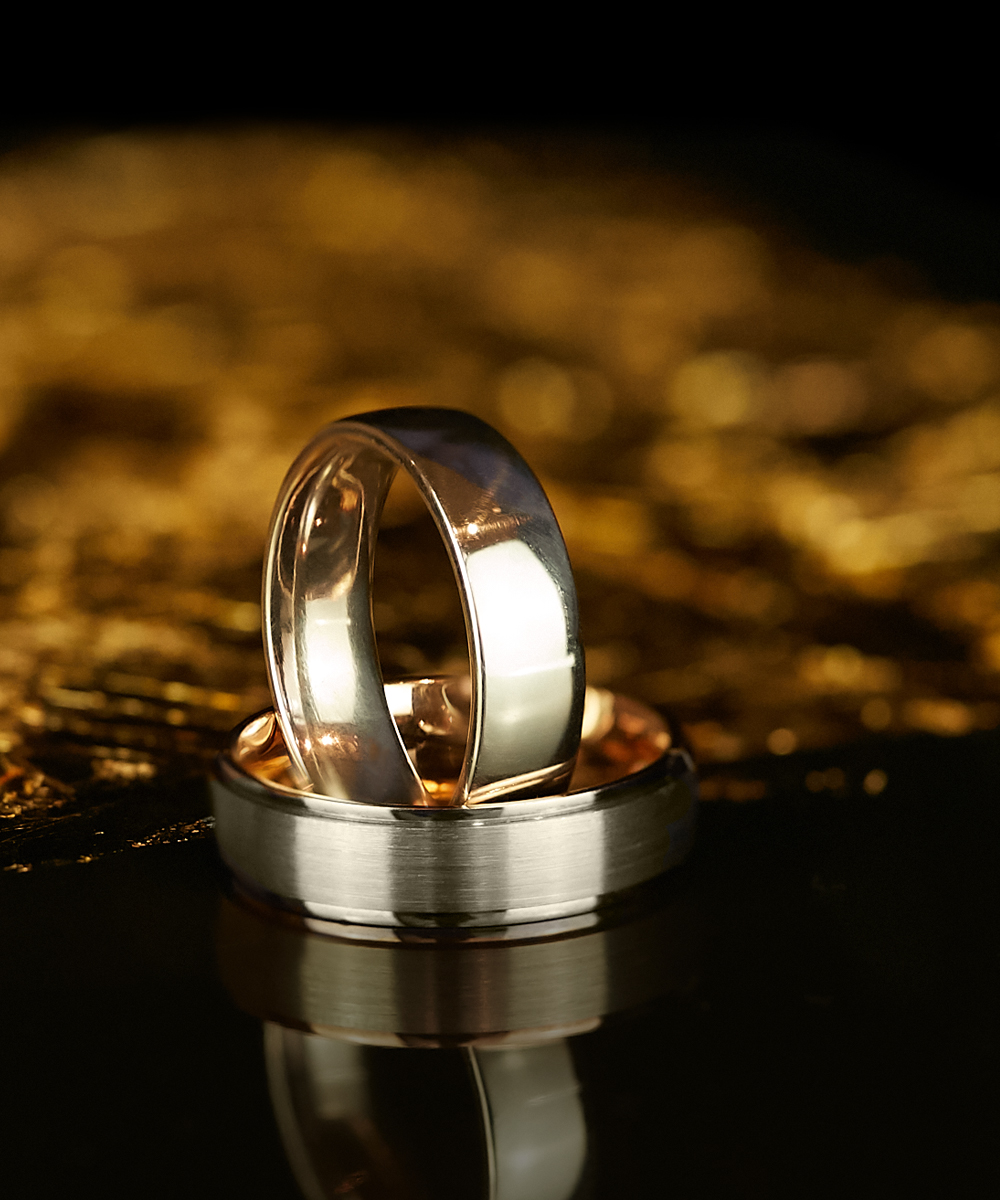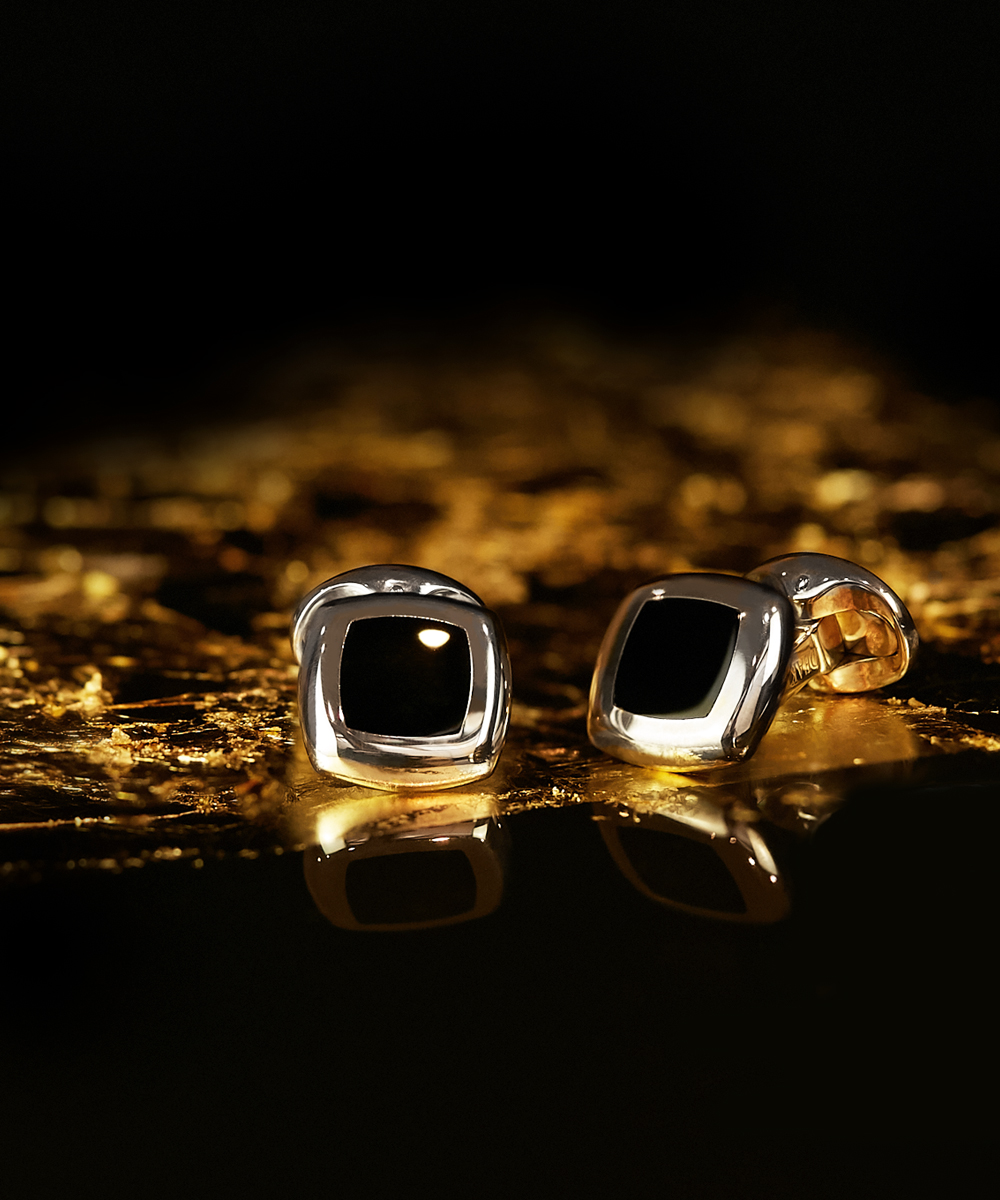Phillip Stoner specialises in Fine Jewellery, which tends to be made using Platinum 950 or 18ct Gold.

Platinum is the rarest of Precious Metals. It is extremely durable and much weightier than Gold or Palladium. It is prized for its ability to withstand daily wear without thinning or bending, making it the ideal material to use for Engagement Rings and Wedding Bands.
Platinum is naturally white so it won’t fade or discolour over time.
All metals can scratch and Platinum is no different. However when Platinum scratches, metal is displaced rather than lost. This means that it can be polished by our Goldsmiths to look like new.
Because of it’s purity, Platinum is hypoallergenic making it ideal for those with sensitive skin.
Unless otherwise stated our Fine Jewellery pieces are made using 18ct Gold, which is lighter in weight than Platinum so ideal for earrings, necklaces and bracelets.
18ct White Gold is naturally greyish in colour, so it is often plated with Rhodium to give it a bright white lustre. Over time this can wear, so 18ct White Gold rings may need to be re-plated in order for them to keep their brightness. Jewellery, which usually isn’t handled as much as rings shouldn’t need re-plating often, if at all.
18ct Yellow Gold has a beautiful, warm tone. It is a softer metal so our 18ct Gold Engagement Rings tend to have Platinum claws to hold the Diamond securely in place and to enhance their brightness.
18ct Rose Gold is made when Copper alloys are mixed with yellow Gold. It has a soft pink hue that is said to flatter any skin tone and age.


Palladium 950 has many of the same traits as Platinum. It’s white in colour, durable and hypoallergenic. However, it’s much lighter in weight and develops a slightly greyer patina over time.
Palladium 950 has always been more readily available than Platinum and as a result was typically much cheaper, making it a popular choice for Gents Wedding Bands.
More recently however, it has become common for Palladium to be used in electronics or by the automotive industry to create catalytic converters. The increased demand has resulted in Palladium Rings becoming more expensive than either 18ct Gold or Platinum.
As a result, we no longer offer Palladium rings as standard, although would be happy to make them upon request.
Sterling Silver is a softer metal, more suited to occasional wear. We tend to use Silver to create Cufflinks or Fashion Jewellery.
Pure Silver would be too soft to make Jewellery so Copper is generally added to give it strength. Over time it can tarnish so we would recommend occasional cleaning with a silver cloth.

A hallmark is a series of marks applied to an item of precious metal by a government-appointed Assay Office. The marks are applied only after an item has been tested to verify its precious metal content. A hallmark shows the registered mark of the company who placed the item on the market, the precious metal content in parts per thousand and which Assay Office it was tested at. Phillip Stoner’s Fine Jewellery is typically made using either Platinum 950, 18ct Gold or a combination of both metals.
All precious metal jewellery offered by Phillip Stoner, an Assay Assured Jewellery Retailer, carries a legally-required independent hallmark verifying the precious metal content (unless the item is exempt by weight).
Phillip Stoner is also part of a scheme of sampling and testing by Assay Assured to ensure that jewellery exempt by weight from hallmarking is also of the claimed standard – a protection over and above legal requirements.
In addition, all products are accurately described stating the precious metal content and Assay Assured jewellery retailers agree not to carry counterfeit branded jewellery on their website.